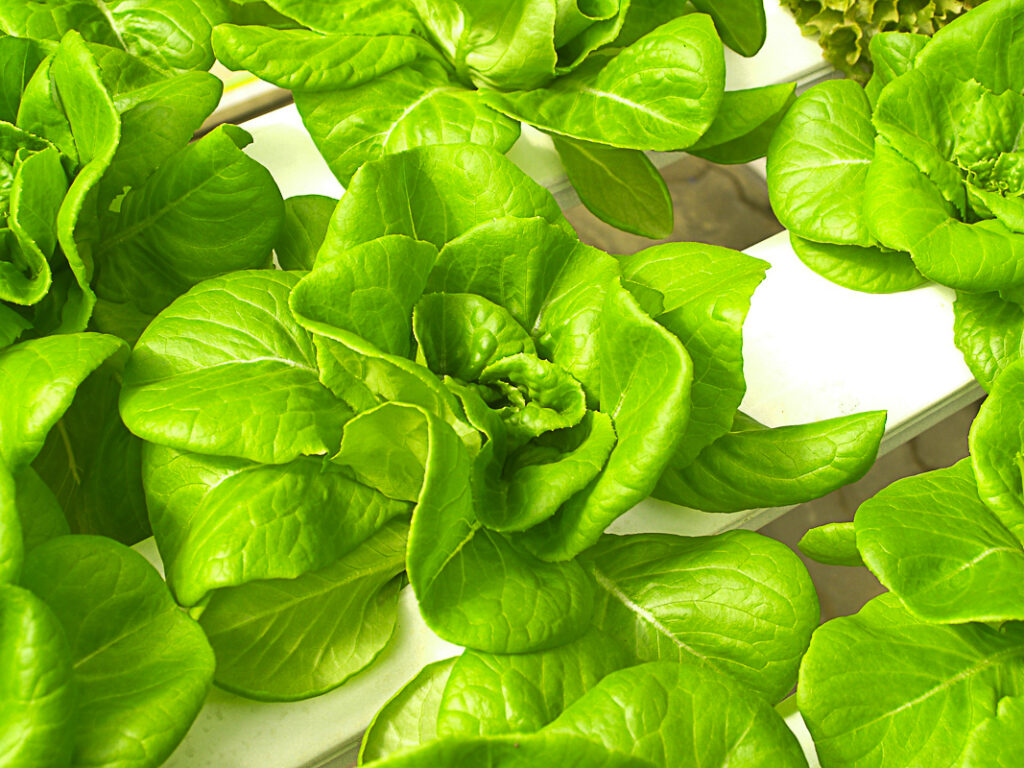Growing hydroponic herbs at home is a fulfilling hobby that allows you to always have fresh flavors at your fingertips. Here, we help find the best hydroponic herb garden kit for your needs. This includes some DIY options for home gardeners who want to roll up their sleeves and some starter kits that make the process a lot easier.
*This post contains compensated links. Find more info in my DISCLAIMER. As an Amazon Associate, I earn from qualifying purchases.
Want to start a hydroponic garden at home easily? Check out our recommendations for Best Hydroponics Starter Kits for Beginners.
What Are Hydroponic Herbs?
Hydroponic herbs are herbs that have been grown solely using water rather than soil. Nutrients typically provided by soil are instead packed into specialized solutions. Flooding, misting, or immersion feed these nutrient solutions directly to the plant.
Plants’ root systems save energy this way by not being forced to exert it trying to stay healthy. As a result, photosynthesis becomes a more efficient process.
This method of cultivation is used in many parts of the world today. It can be done both indoors and outdoors, and it does not require natural sunlight to work.
Herb types great for hydroponics include basil, coriander/cilantro, parsley, oregano, watercress, dill, thyme, chives, and chamomile.
Check out our tips on how to grow these herbs hydroponically:

Hydroponic Herb Garden DIY
Pros Of Growing Herbs Hydroponically On Your Own
Buying a hydroponic herb garden kit is not a necessity to get started. You are able to do it yourself. There are a few reasons why someone might take this route.
First, making your own hydroponic garden grants you the option of upcycling the materials used to build it. Doing so means you can have the least amount of ecological impact when setting up your hydroponic herbs.
Another pro of building your own system is customization!
When you take the DIY-route, your system can be molded to best fit your personal space needs. This versatility means you can be more savvy about the location of your garden and potentially increase the chances of optimal results.
Cons Of Doing It Yourself
Still, there are a few setbacks to setting up your hydroponic herb garden on your own. If you are new to hydroponics or gardening in general, a DIY system may not be right for you.
Hydroponic gardening kits you find on the market benefit from being designed by professionals who know what they’re doing. Investing in a hydroponic herb garden kit, therefore, increases the likelihood that your system is fail-safe.
Also, trying to find the best-upcycled materials might be time-consuming and require a bit more creative brainpower. Also, depending on the upcycled materials you use, they may not last as long as the ones you find in new kits.
Best Hydroponic Herbs Kits
Like we said, sometimes it’s in your best interest to go with a pre-made kit instead of making your system from scratch. So, here is our editor’s pick of hydroponic herb garden kits for growers on a variety of budgets and skill-levels.
Environet Hydroponic Herb Growing Kit Set

This kit by Environet is at the lowest price point. It uses a wicking method and comes with three mason-jar-styled net pots. This kit is a desirable option for newbies looking to start with something low-maintenance and simple. Mason jar hydroponics is pretty simple and a great way to get started.
However, this system would not work with your own seeds. Advanced growers interested in hydroponic gardening kits allowing for the most versatility of herb-type may find this limiting.
Mindful Design Hydroponic Indoor Herb Garden Kit

The next kit by Mindful Design includes a LED growing light, timer, and water level alarm. It uses a passive growing system, thus no need for pumps or any complicated parts. This model also allows you to use your own seeds.
This model’s light means that it is not as dependent on natural sunlight. Growers with limited indoor spaces would benefit from this kit.
Still, the system does require growers to closely monitor water levels and use electricity. We, therefore, suggest this kit is best suited for intermediate growers.
Blaward Hydroponics Growing System

The Blaward Hydroponics Growing System is the ideal setup for any home gardener. Regardless if you are new to home gardening or have limited space, this system is well-suited for both. The system uses a ‘V’ Type Water Adding Device to ensure your herbs receive just the right amount of water. An automated light system provides 12 hours of UV growing light then turns off automatically.
The system can grow up to 10 different herbs and small vegetables. An adjustable light stand can be raised or lower as your plants grow. The unit comes with 10 Grow Sponges and 10 Grow Baskets making getting started quick and easy.
Hydrofarm GCSB Box Kit Hydroponic Salad Garden

Hydrofarm’s kit is also a great option. This hydroponic herb garden kit does not use electricity. It uses a deep water culture method and practically requires no maintenance.
It comes with 8 different pod sections, allowing you to grow up to eight different herb types simultaneously. This kit is great for people who want to maximize plant types.
With this system, it is important for growers to monitor light exposure. With no built-in light fixture, this system works best for those with access to plenty of natural sunlight.
Click and Grow Smart Garden 3 Indoor Herb Garden

Similar to the second option, this kit also comes with an LED growing light and uses a passive hydroponics system. This system is great for growers at any skill level. It comes with three seed pods.
It is also lightweight and easily portable. According to reviewers, this kit takes up about as little space as a loaf of bread! This hydroponic herb garden kit may be at a bit of a higher price point, but it pays in its chic design.
Pros And Cons Of Hydroponic Herb Growing
Pros
Growing herbs in hydroponics have so many benefits. First, it requires significantly less water than soil methods. This makes hydroponic herbs a more environmentally friendly option.
Related to this, hydroponic herbs are less susceptible to under and over-watering issues. Unlike soil plants, no guesswork is needed to ensure your hydroponic plants are getting exactly what they need to sustain themselves.
Another benefit is having a better harvest. Hydroponic herb plants grow as much as 50% quicker than herbs grown traditionally. They also grow significantly larger. Herbs made successfully through hydroponics are more aromatic, nutritious and abundant.
When growing herbs hydroponically indoors, you also have more control over the elements needed to cultivate a healthy plant.
There is a decreased likelihood of pests. You don’t have to manage unpredictable weather. There is also no need for weeding.
Cons
This doesn’t mean, however, there are no setbacks. Seeds as a starting place for growth is common practice in hydroponic herb gardening. However, not all herbs do well with hydroponic seed germination.
For instance, mint, white sage, bay leaf, rosemary, and lavender grow best when starting from cuttings. Starting from cuttings may give you less variety to choose from than a seed option.
Lastly, some hydroponics systems are vulnerable to rot. Wicking and Eb and Flow hydroponic methods are most susceptible. Sanitation and proper maintenance are vital to ensuring these systems work.
These limitations of course do not outweigh the benefits, but still are something to keep in mind.
FAQs Hydroponic Herbs At Home
Herbs are some of the fastest and easiest plants to grow hydroponically. Perfect for new home gardeners, some of the herbs that grow well hydroponically include basil, mint, thyme, and sage.
One of the most convenient ways to grow herbs hydroponically at home is with a growing kit. Growing kits provide everything you need to grow herbs including detailed instructions.
